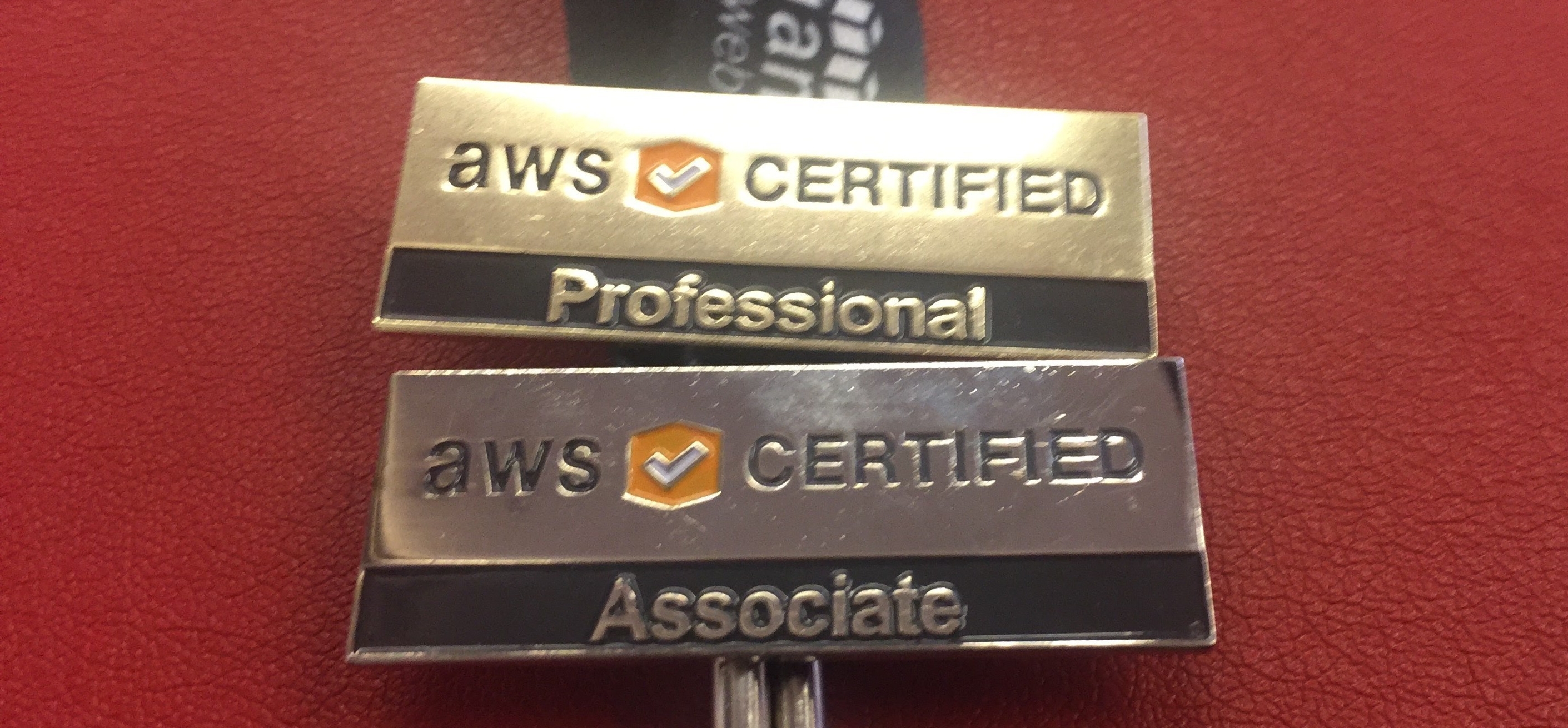IT certifiations demystified
Recently I counted my certificates and I was shocked to find out that I own 21 various types of them. I decided it’s time to sit and write down all the things I’ve learned and found out on this interesting topic.
My adventure with IT certificates
I got my first certificate in 2003. Yes - there was no Youtube and Facebook then, but I already knew that networks were something quite important. I decided to take a Cisco Networking Academy training and sit an exam afterward which I passed. That was the beginning of my journey with IT certifications. After that I got many more. Here are the most significant ones:
- Microsoft Certified Professional (around 2005) - I cannot find any email with results, but it was exam on Windows 2003 Active Directory and probably one of the last times I had something to do with Microsoft technologies
- Red Hat Certified Engineer (2007) - my first Red Hat certificate and exam which I really enjoyed, as it was first hands on test and also beginning of a longer journey towards RHCA
- VMware Certified Professional (2008) - it was around then when virtualization was a hot topic (and ultimate “problem solver”) which made a many sales for hardware vendors, I remember I was using ESX 3.5 back then :-)
- Prince2: Foundation (2009) - my first non-technical cert which gave me pretty fair amount of knowledge on how good projects should be managed that I’ve never seen implemented fully in real life yet ;-)
- Red Hat Certified Architect (2012) - I was 9th person in Poland to meet all requirements (passed 5 exams on multiple, general linux and Red Hat specific areas) and was really excited about it
- Professional Scrum Master I (2014) - very good exam when it comes to Agile foundations and it wasn’t that easy at all
- Zabbix Certified {Specialist,Professional,Trainer} (2015) - it wasn’t actually an exam but rather reward after 10-day training, gave me a solid knowledge and a trip to Zabbix headquarter in Riga
- AWS Certified Solutions Architect - Associate (2015) - my first AWS exam, I knew it then it’s going to be something that I want to work with next
- Certified Jenkins Engineer (2016) - I was the first to sit this exam in Poland, quite fun, not particularly challenging, but gave me a boost of knowledge on Jenkins
- AWS Certified Solutions Architect - Professional (2016) - next level of AWS Architect exam which I sat in Las Vegas during AWS re:Invent 2016, very challenging and scenario-based - I really enjoyed it!
I skipped a few (mostly Red Hat ones or different levels, areas), but during writing of this I realized how many different exams I had a chance to sit and I want to share my view on IT certifications. I will focus on exams rather than on whole training and certification path, as I attended only a few courses and can’t say much about them.
What do they give you?
It depends on person, but in general exams are designed to check your knowledge - at least most of them. And they should be considered as guidelines on what you need to know. It may sound trivial, but in practice many of available software solutions are quite complex and properly designed exams should point you a path you should follow to make it easier to get to know particular area/software/product.
Exams levels
Many of exams have multiple levels - just like in RPG. Actually Red Hat prepared even more than usual 3 levels (RHCSA -> RHCE -> RHCA) by providing explicit level for RHCA. And just like in games these levels show how determined you are in achieving your goals. Sometimes it can also show how much time you spend on training and thus also how rich your company is :-)
Benefits
It depends :-) There are three beneficiaries in this case:
- you who sit an exam
- your company who paid for it and employs you
- a company who prepares it
Let me talk about benefits for each of them separately, but I guess it’s a win-win-win case :-)
Benefits for you
Swag
Often you get pins, plaques and traditional paper certificates that you can place on your wall so everybody can see how awesome you are :-) These trophies are a big factor for many guys.
Fame and prestige
You are often seen as an expert when owning certificates and that’s a really nice benefit, cause you can always use it in such environments to influence people and convince them to your point of view. For very hard (or expensive) exams you can also be part of elite community, because of the small number of people who passed it.
Bigger salary and more job offers
Let’s face it - we can’t buy anything for fame and that’s why certified specialists get bigger salary and interesting job offers. I think that’s the most important factor for people considering certification. There are companies looking for experts certified on particular technology or product and are willing to pay you more than average wages.
Satisfaction and proud
Maybe it’s just me, but whenever you get a certification you feel proud of yourself - especially for most challenging exams (like RHCA and AWS Professional in my case). That boosts your self-confidence and just makes you feel good about achieving your goal.
Knowledge and skills
Last, but not least - during preparation you learn new things you can use in your job or a future one. Personally I consider it the most important benefit - it’s not about fame or swag, but a real knowledge and this is something that can’t be taken away from you. I treat other things only as incentive to gaining more knowledge, be better at what I do and to learn even more.
Benefits for your employer
Prestige
When company has many certified specialist and they are considered as experts then it may be used to attract even more good people - especially today when demand for expert is much more higher than supply.
Inside knowledge
Certified experts can solve many problems in better, easier way which can attract more customers and increase sales. Additionally they can save money on external consulting (although many still prefer to use external experts for some cases).
Partner programs
Many partner programs require that company hire specific amount of certified experts for particular technology. Having met these requirements you can leverage certain features such as access to internal knowledge base, internal conferences, free of charge products (often “not for resale”) and what is more important more opportunities to sale (listing in vendor catalog, using well-known partner “badge”).
Meet tender requirements
In many cases in order to fulfill all requirements of tender (especially for public organizations) it is necessary for company to have a proper amount of certified specialists in particular technology or product.
Benefits for the vendor
Profits
There are some free exams, but it’s the paid ones that are considered to be more recognizable and sales brings profit to the vendor. It is however more tricky, as some exams are very pricey (exams from RHCA path were and are for sure) and some are relatively cheap (like AWS associate levels). Personally I think that the cheaper ones are meant to build a broader group of followers (see below) while the more expensive focus more on building elite status for holders of these kind of certificates.
Build devoted community
That’s the biggest gain for vendor - everyone who passed exam becomes in fact a fan of technology and also the company which gave him this reward (and many other benefits mentioned earlier). I guess it’s a win-win strategy, but in the end it’s the vendor who will gain more profits from it. And that’s why it’s an awesome idea to build certification program and simultaneously hard to make certificates popular and highly desired.
So should you get certified?
Maybe you’re asking yourself this question, especially when you heard about other guys having one and saw some awesome t-shirt/plaque/sticker/pin :-) Let me help you with that, cause like for most of questions like these there is one answer - it depends.
Why yes
If you need motivation to learn something new
Certification is kind of reward for your hard work and often can motivate you to learn something new.
Extension and evaluation of training material
Often exams are part of training or are sold in a bundle so it’s very easy to get certified, as knowledge is still fresh after training.
Your expertise are is becoming less attractive on job market
If you need more attention from head hunters then for sure a certificate will boost your position among so many of those specialists these days.
You need swag :-)
Seriously - this can be the only opportunity to have awesome t-shirt you can wear on geek parties and conferences. And those cannot be obtained in other way than to pass exam.
Why no
You work in highly specialized and narrow field
Exams cover areas of particular technology briefly (with exception for some higher levels) and you won’t find out deep level technical details during learning (unless you spend much more time).
You don’t need to confirm your knowledge
I know many guys who are excellent experts and don’t own a single certificate and they don’t need it. Does Linus Torvalds has one? I don’t think so. Don’t be so quick however in discarding the whole certification idea and review all benefits from the list above - after all how many Linus Torvalds and alike are there? :-)
You have many more ideas on how to spend money
Exams (and accompanying training if needed) aren’t cheap and some have better ideas on what to do with them.
You favor experience over certificates
Experience comes with practice and that’s what some people think is more important. In some cases however one may find himself in 2017 as a Solaris administrator with dwindling drastically amount of job offers.
Training and exams
Up to this point I was focused mainly on exams and certificates, but in most cases they are closely connected and often sold with a training. I did mostly because I have small experience with it since in most cases I was preparing for exam on my own. There are few advantages of this approach.
First is of course money - training is always more expensive than exam. Second is more practical. You can learn at your own pace and what is more important you can learn more and in more details than during training. I often found few interesting technologies or parts that interested me more and dug deeper than I normally would.
I’m not saying of course that courses are not needed. In contrary - I often missed of some important details and it cost me failed exam and that was the case in one of exams in RHCA. Also for many guys (including me) taking a training is much, much more convenient and easier way to acquire knowledge. It is provided in more organized way with many practice task that you would have to come up by yourself.
Practical vs. theoretical
In general there are two types of exams:
- practical/hands-on - you get a set of tasks to perform on actual actual software (sometimes on simulators)
- question based - like in school, just you and long list of questions single or multiple choice
I recommend taking hands-on exams, as they are more interesting. They require more knowledge, practical skills and experience. It is also about freedom of choice, cause in most cases only the result matters and not the path you followed to achieve it. Just pure fun! Unfortunately most of exams are question based these days. That doesn’t mean they are easier to pass - in contrary, in many cases questions are tricky and require from you much broader knowledge than in hands-on ones.
Final thoughts
I hope all of above information has helped you to understand why we need certification processes, who benefits from it and why you should consider getting one or carry on without further pondering on it. From my perspective it’s a win-win case and excellent motivator to push yourself towards improving your skills, building learning habit and getting many interesting job offers. Now I’m going to look for another opportunity and get myself another certificate with a valuable byproduct of the whole process - knowledge that hopefully will stay in high demand even in a world of “I’ll google it”.






Leave a comment